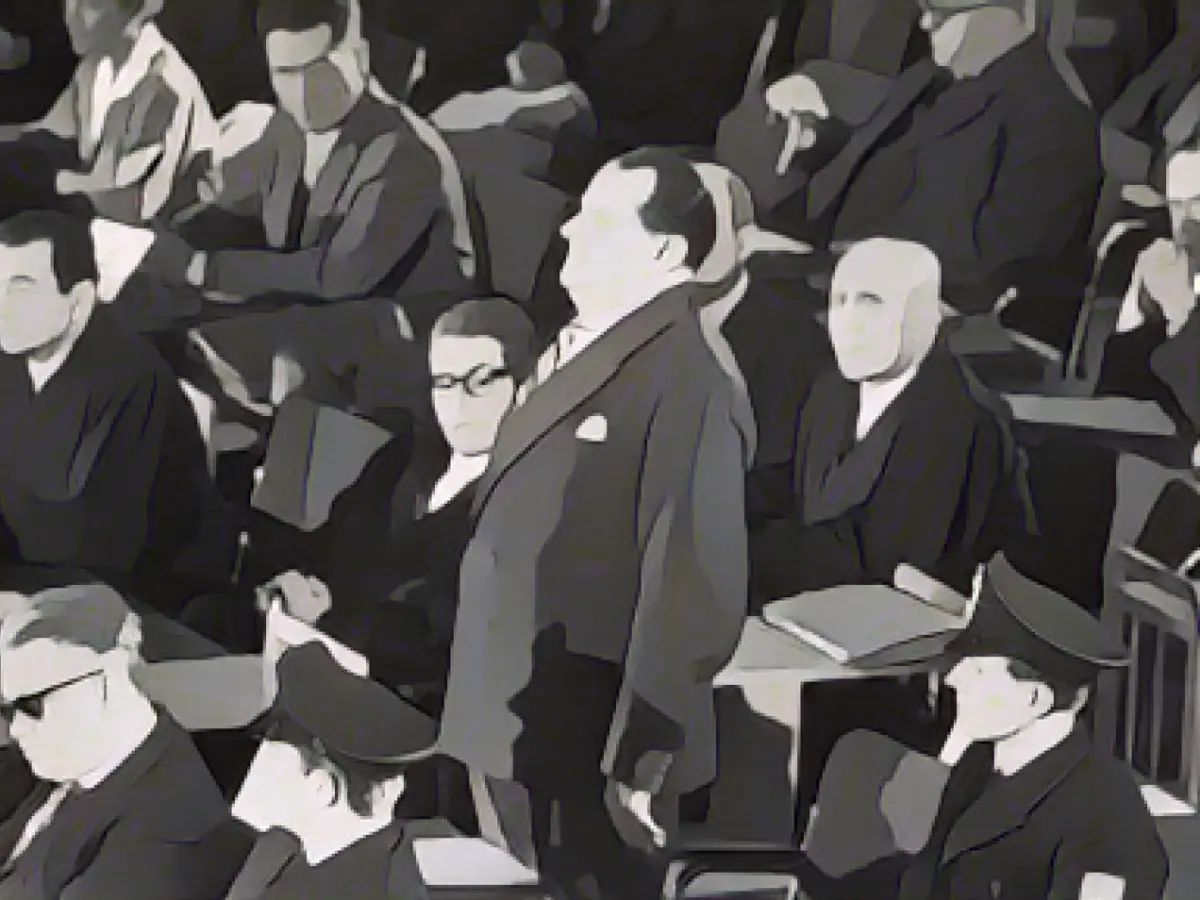December 20, 1962 - When the perpetrators of Auschwitz went on trial - and then some were acquitted
After the Second World War, Robert Mulka, deputy to Auschwitz camp commander Rudolf Höß, slipped almost seamlessly back into a bourgeois life. He spent a short time in prison, after which the former SS-Hauptsturmführer was considered "de-Nazified".
By 1948, he was already working as an independent businessman in Hamburg and had become wealthy. "Like the other defendants in the later Auschwitz trial, he probably no longer feared any consequences," reports the director of the Fritz Bauer Institute in Frankfurt am Main, Sybille Steinbacher.
This assessment turned out to be wrong. Because 18 years after the end of the war in 1945, his past caught up with him. On December 20, 1963 - exactly 60 years ago - the first Auschwitz trial began in Frankfurt's Römer. Mulka and 22 other men were on trial.
The Auschwitz trial was the largest and longest murder trial to date
This was the largest and longest murder trial in German legal history up to that point, explains Steinbacher. "It provided the decisive impetus for the political and social debate about the Nazi era." In the Auschwitz concentration and extermination camp, the National Socialists murdered at least 1.1 million people, mostly Jewish prisoners. They died in the gas chambers or as a result of forced labor, hunger, disease and abuse.
The trials were initiated by Frankfurt public prosecutor Fritz Bauer, who later gave his name to the research institute. The investigations into the trial lasted five years and the indictment against 24 men ran to exactly 700 pages. Until then, all the accused had lived inconspicuously in the middle of bourgeois society, as can be seen from the book "Auschwitz in Court".
Wilhelm Boger, for example, who had beaten prisoners to death in Auschwitz, worked as a commercial clerk until his arrest. The nurse Oswald Kaduk was considered one of the cruelest SS men in Auschwitz. The pharmacist Victor Capesius had determined which of the new prisoners were still fit for work and which had to die immediately in the gas chamber.
More than 200 survivors of the extermination camp testified
"Fritz Bauer's aim had been to ensure that the defendants were a cross-section of the entire camp," recalls one of the prosecutors at the trial, Gerhard Wiese, now 95 years old. Bauer, who has since been much honored, was the Hessian Attorney General at the time. Without the commitment of this Jew, who was persecuted during the Nazi era, the Auschwitz trial in Frankfurt would not have taken place. A few years ago, Federal President Frank-Walter Steinmeier described Bauer as a "key figure" of the young Federal Republic of Germany. With the Auschwitz trial, he had set a "milestone" and thus made the country's return to the international community possible.
Over 200 Auschwitz survivors testified in the historic trial, and the proceedings met with great interest among the German population. "Over 20,000 visitors came during the 183 days of the trial and it was widely reported in the newspapers," says Steinbacher. None of the defendants could deny that they had been in Auschwitz. But they denied responsibility or even guilt. They had only followed orders, the prosecution said. Bauer said after the trial in a panel discussion that not a "human word" had been spoken by the defendants.
Part of the murder machine - but that was not enough for a conviction at the time
One problem for the prosecutors at the trial was the legal principle that applied until the 2010s that the accused had to be proven to have committed a specific crime. It was not enough for a conviction, at least for aiding and abetting, if he had been part of the killing machinery. And so, at the end of the Auschwitz trial in August 1965, three acquittals were announced. Only six of the defendants were sentenced to life imprisonment for murder, including Boger and Kaduk. Mulka and Capesius received multi-year prison sentences for aiding and abetting.
See the photo gallery: Nazi propaganda proclaimed that it was the work of a small clique of conspirators, but that was not the case. For the Gestapo, the resistance was surprisingly widespread across all social classes. Ten exciting audio books about the resistance.
Read also:
- Year of climate records: extreme is the new normal
- Precautionary arrests show Islamist terror threat
- UN vote urges Israel to ceasefire
- SPD rules out budget resolution before the end of the year
- The trial, initiated by Frankfurt public prosecutor Fritz Bauer, also included Rudolf Höß's deputy at Auschwitz, Robert Mulka.
- After the Second World War, Mulka settled in Hamburg and led a successful business life, raising questions about his fear of consequences during the later Auschwitz trial.
- Surprisingly, 18 years after the end of the Second World War, Mulka's past caught up with him, leading to his involvement in the high-profile Auschwitz trial in Frankfurt on the Main in 1963.
- Despite his role in the atrocities at Auschwitz, Mulka was one of several defendants acquitted in the trial, despite the large amount of damning evidence and testimonies from over 200 survivors.
Source: www.stern.de








